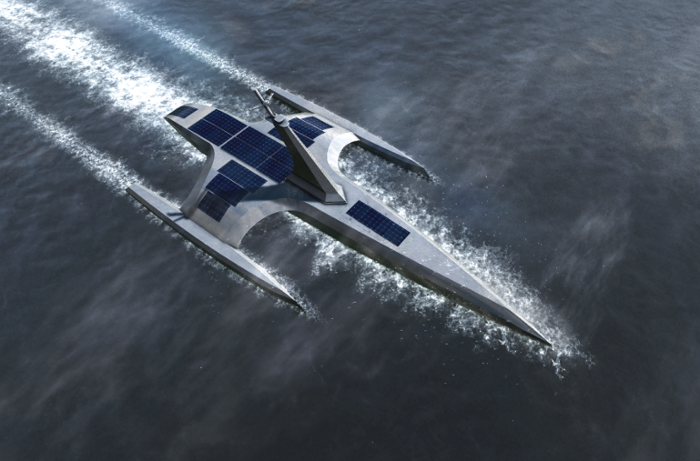A crewless ship designed to recreate the Mayflower’s historic journey across the Atlantic 400 years ago is returning to the UK after developing a fault.
The Mayflower Autonomous Ship (MAS) set sail on Tuesday on a 3,500-mile (5,630km) journey from Plymouth in the UK to Massachusetts in the US.
Project bosses said it had “just a minor mechanical issue” which they planned to assess and repair.
The voyage to the US had been expected to take about three weeks.
The 50ft (15m) long solar-powered trimaran is capable of speeds of up to 10 knots (20km/h) and is being navigated by on-board artificial intelligence (AI) with information from six cameras and 50 sensors.
It started suffering problems on Friday and has turned back for Plymouth.
Project director Brett Phaneuf said it was “just a minor mechanical issue on a part you’d find on any boat”.
“But it limited our speed such that coming back was the prudent course of action,” he said.
‘Go again’
He added: “The AI systems worked perfectly though.
“We will assess, repair and go again”.
The voyage is also due to see experiments conducted, with collections of data on marine life and sampling for plastic waste.
The vessel was created to show the development of technology in the centuries since the Pilgrim Fathers set sail for the New World, bosses said.
The original Mayflower, a 100ft (30m) triple-masted wooden vessel with canvas sails and a top speed of three knots (6km/h), carried 102 passengers and a crew of about 30 from Plymouth to Cape Cod, Massachusetts.
The crossing in 1620 took more than two months.
The 2020 version of the boat is made of aluminium composite, with a back-up diesel generator to go with its solar-powered batteries.













![Hotstar Premium Cookies 2019 [*100% Working & Daily Updated*] Hotstar Premium Cookies 2019 [*100% Working & Daily Updated*]](https://tahav.com/wp-content/uploads/2019/11/Hotstar-Premium-Cookies-Free-100x70.jpg)



